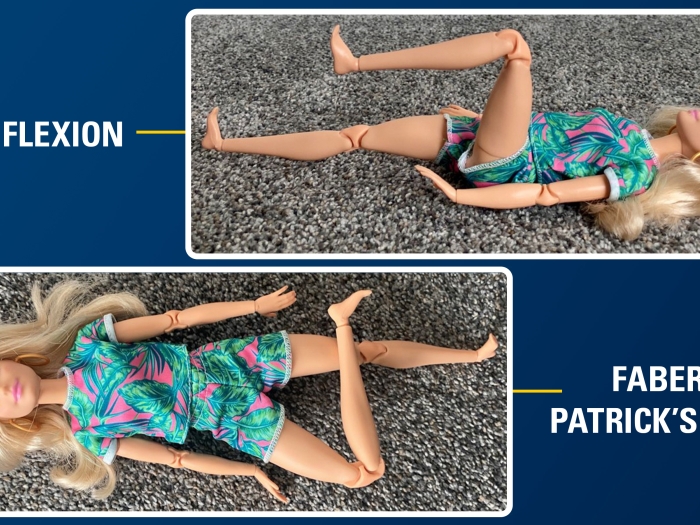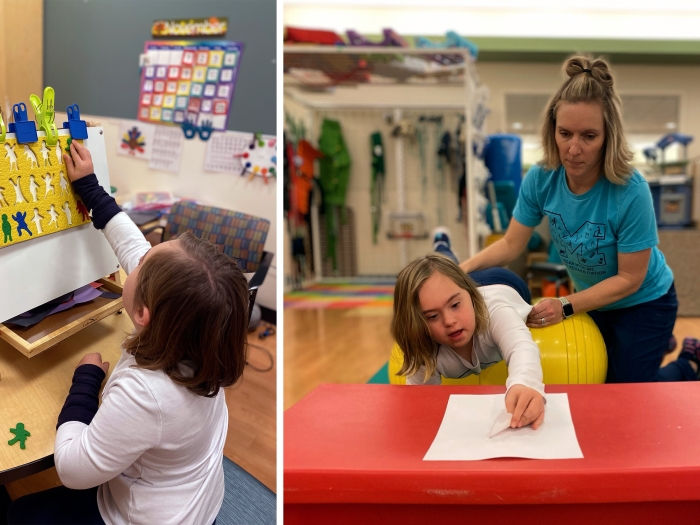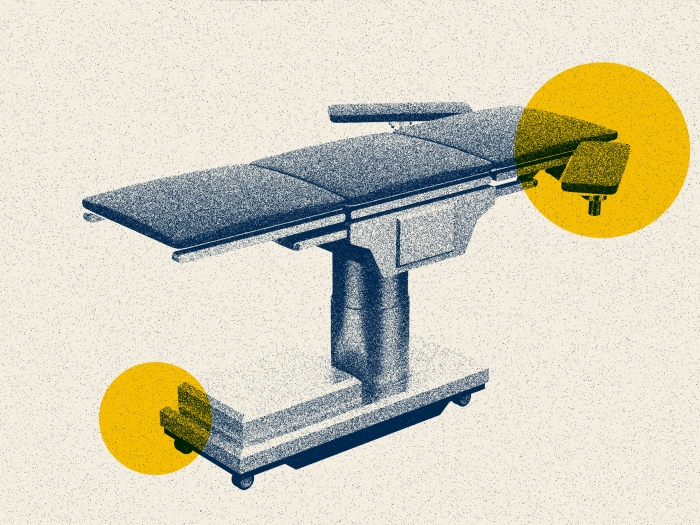New videos demonstrate simple exercises for at-home reconditioning after an illness or procedure.
12:20 PM
Author |

Editor's note: Information on the COVID-19 crisis is constantly changing. For the latest numbers and updates, keep checking the CDC's website. For the most up-to-date information from Michigan Medicine, visit the hospital's Coronavirus (COVID-19) webpage.
Interested in a COVID-19 clinical trial? Health research is critical to ending the COVID-19 pandemic. Our researchers are hard at work to find vaccines and other ways to potentially prevent and treat the disease and need your help. Sign up to be considered for a clinical trial at Michigan Medicine.
There's no doubt that social distancing guidelines and stay-at-home recommendations intended to minimize the spread of the coronavirus are keeping us safe. But in doing so, they have also upended many of the routines of our healthy daily living, including exercise.
Inactivity is not a good prescription for anyone – especially those whose mobility and stamina have been weakened by illness or frail health.
The Physical Medicine and Rehabilitation specialists at Michigan Medicine have created a new series of videos demonstrating simple stretching, breathing and flexibility techniques that can be done at home with no special equipment.
The idea for the videos came out of discussions about opening a field hospital on campus in response to the coronavirus pandemic.
"We needed to prepare for a number of scenarios," explains Edward Claflin, M.D., Michigan Medicine's Associate Medical Director of Inpatient Rehabilitation. "From a rehabilitation standpoint, that meant developing easy-to-use tools like videos to deliver general information and tips for people deconditioned as a result of not only the virus, but other respiratory and non-respiratory conditions."
Thanks to the community's cooperation with social distancing and other measures, Michigan Medicine has seen a steady decline in coronavirus-related hospital admissions since April 15, flattening the curve to the point where plans to build for overflow capacity have been put on indefinite hold.
Like Podcasts? Add the Michigan Medicine News Break to your Alexa-enabled device or subscribe for daily updates on iTunes, Google Play and Stitcher.
"While we don't currently need a field hospital, we still need the videos," Claflin says. "As long as clinic operations remain limited, tools like these help us support patients recuperating at home, including COVID-19 patients as well as those who are functionally frail and or debilitated by other illnesses."
Rehab options for every fitness level
"We use terms like 'deconditioned' and 'debilitated' to describe general weakness or loss of strength and efficiency in the body's musculoskeletal, cardiovascular and respiratory systems," explains physical therapist Danielle Bordo, P.T., D.P.T., who demonstrates the exercises in the videos.
"Before the shut-down, we helped patients 'recondition' in hospitals, rehabilitation centers and clinics, guiding them through gentle exercises and monitoring their progress," she continues. "For now, we need to provide support remotely."
"Until we can safely return to one-to-one therapy – which we hope will be soon – these videos are a way for patients to move forward with their rehabilitation," adds Claflin. "We see them as a supplement to – not a substitute for – a personalized rehabilitation plan."
Bordo is featured in four videos, each targeting a different level of mobility:
The exercises, including several focused on increasing respiratory wellness, are similar to those used with hospital inpatients. They're simple and safe to do at home without special equipment or professional supervision. Each video begins with an explanation of the level of effort required.
"Just like in the clinic setting, we encourage patients to go at their own pace," says Bordo. "Based on what they can tolerate we suggest they make time for some physical activity every day – even just a few minutes."
MORE FROM MICHIGAN: Sign up for our weekly newsletter
If you have any concerns about your ability to stand or walk safely by yourself, or believe you are at a high risk for falls, consult with your physician to determine if these exercises are right for you.
"As always, our top priority is the safety of our patients and staff," says Claflin. "Despite having limited points of direct contact at the moment, we want our patients to know we're still here to support their recovery."

Explore a variety of healthcare news & stories by visiting the Health Lab home page for more articles.

Department of Communication at Michigan Medicine
Want top health & research news weekly? Sign up for Health Lab’s newsletters today!





